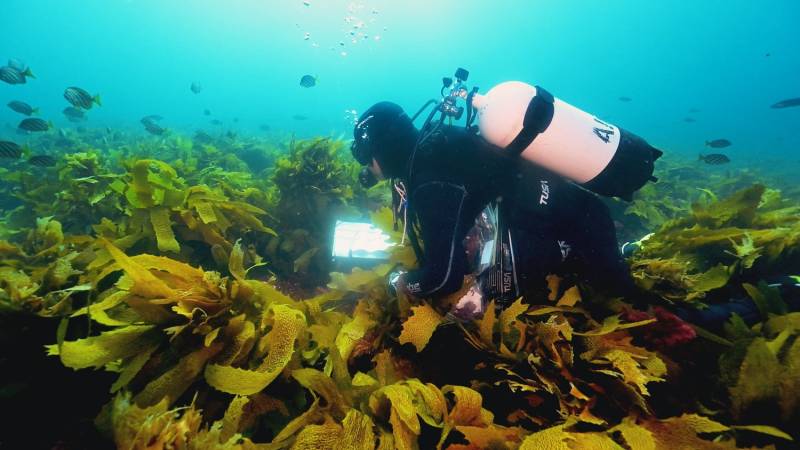Higher Degree by Research Application Portal
| Title | Emerging blue carbon pathways as natural climate solutions |
|---|---|
| Supervisor | Dr Albert Pessarrodona Silvestre |
| Dr Karen Dexter | |
| Course | Doctor of Philosophy |
| Keywords | blue carbon |
| marine ecology | |
| climate change | |
| carbon cycle | |
| spatial modelling | |
| Project description | Managing ecosystems to remove and store more carbon lies at the core of Australia’s nature-based climate change mitigation strategy. This project will investigate whether two overlooked pathways for natural carbon sequestration—blue carbon storage in the deep ocean and in unvegetated marine sediments—could be leveraged to help mitigate climate change. The project can develop along one or more lines: 1) quantifying the flux of carbon from coastal vegetated ecosystems (mangrove forests, seagrass meadows, kelp forests) to the open ocean 2) mapping the carbon stored in Australia’s offshore sediments and their vulnerability to disturbance 3) examining the impacts of climate change on coastal carbon flows. The project can incorporate field, aquarium and laboratory-based components as desired. Experience with data wrangling and spatial modelling are not essential but highly desirable. |
| Opportunity status | Open |
| Open date | 01 Aug 2025 |
| Close date | 30 Nov 2025 |
| Funding source | Research Training Program scholarship and/or Australian Research Council DECRA award to Dr. Pessarrodona |
| School | Graduate Research School |
| Contact | albert.pessarrodona@uwa.edu.au |
| Specific project requirement | Candidates should have a background in marine science and are expected to apply for a Research Training Program scholarship. Exceptional applicants may be eligible for funding through other means. To be competitive you will need a BSc equivalent to 1st Class Honours or MSc, including research experience. |
| Additional information | Prospective candidates should send a CV and cover letter, briefly outlining their experience and motivations for pursuing PhD research and their interests, to the main supervisors. |
| Course type | Doctorates |
| Description | The Doctor of Philosophy (PhD) is a program of independent, supervised research that is assessed solely on the basis of a thesis, sometimes including a creative work component, that is examined externally. The work presented for a PhD must be a substantial and original contribution to scholarship, demonstrating mastery of the subject of interest as well as an advance in that field of knowledge. Visit the course webpage for full details of this course including admission requirements, course rules and the relevant CRICOS code/s. |
| Duration | 4 years |
Guidance
